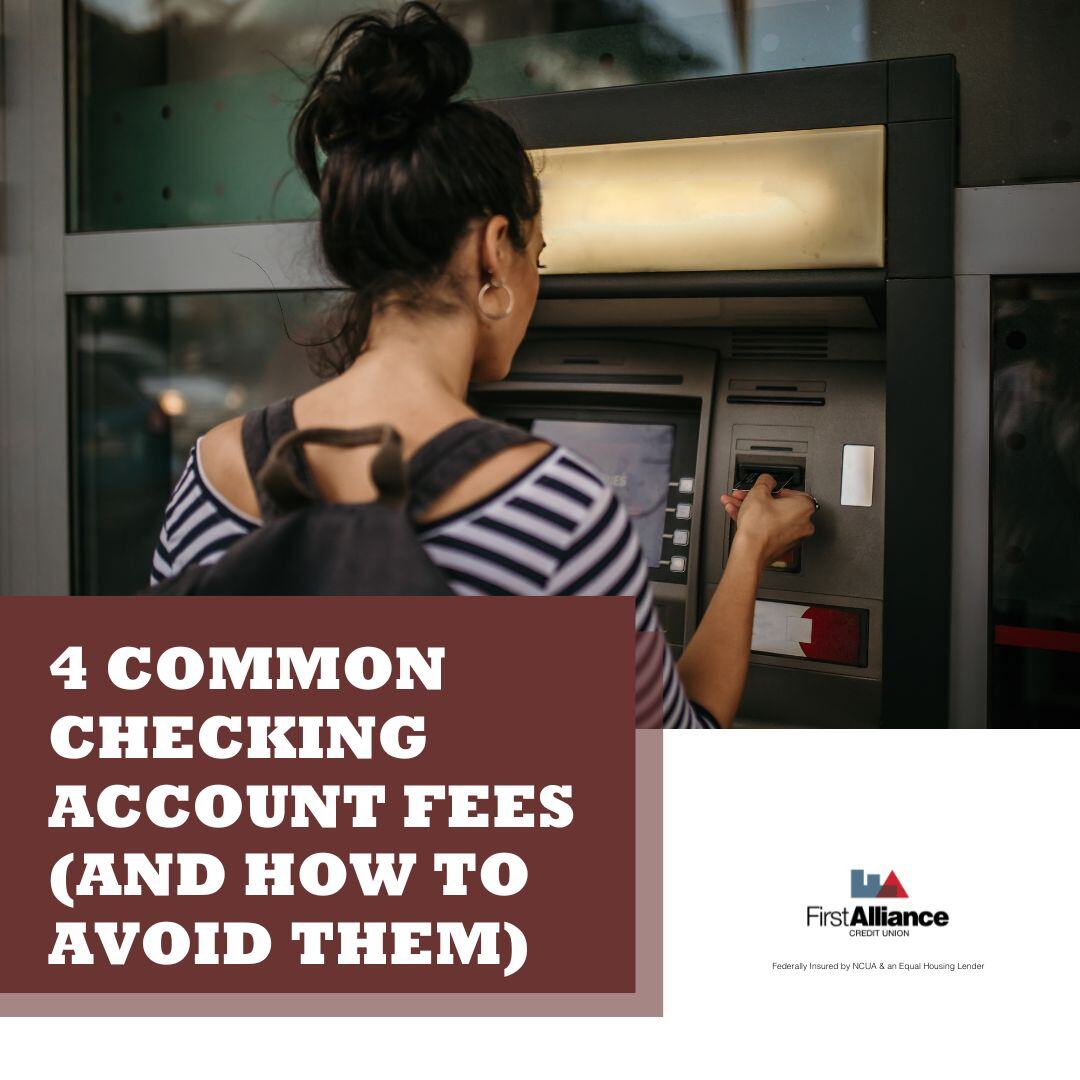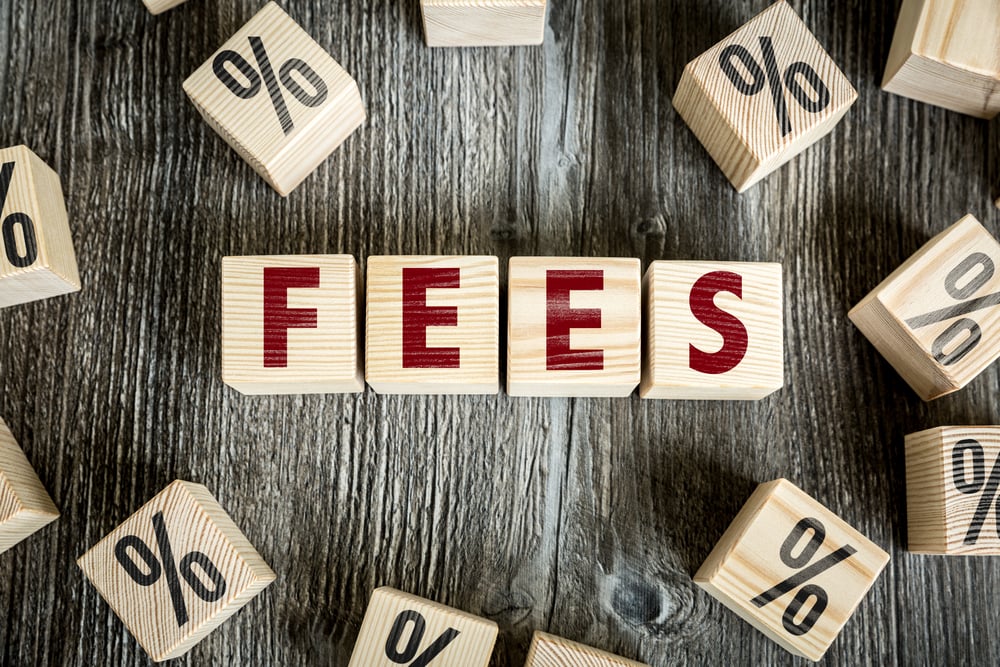Checking Account Fees to Watch Out For
When we talk about steps you need to take to achieve financial success, we usually don’t talk about the importance of a checking account. That’s...
3 min read
 Chris Gottschalk
:
Feb 10, 2022 6:45:00 AM
Chris Gottschalk
:
Feb 10, 2022 6:45:00 AM

Let’s be honest—while there are some checking account fees you want to avoid at all costs, such as a monthly fee, there are a lot of fees that are common to pretty much all checking accounts. Just because these fees are common, though, doesn’t mean they’re unavoidable.
Here are some of the most common fees you’ll encounter with a checking account, as well as ways you can avoid incurring them.
Many financial institutions charge you if you use an ATM to make a withdrawal or deposit. While it’s not much, usually only $2 or $3, it can still add up depending on how often you use the ATM. Even worse, if you use an ATM your financial institution doesn’t own, you’ll probably be charged two transaction fees, one by your bank and one by the ATM’s owner.
If you want to avoid an ATM fee, either use the ATMs at your financial institution exclusively or make sure that any ATM you use is fee free. Of course, these days many people avoid ATM fees simply by using their debit card to pay for most of their retail purchases.
Perhaps the best way to avoid ATM fees, though, is by selecting a financial institution that doesn’t have them, such as First Alliance Credit Union. As an added bonus, most First Alliance branches have Advisor Supported Kiosks, which let you do more banking transactions than you’d be able to do on an ordinary ATM.
If you’re still getting your monthly bank statements mailed to you each month, you may be incurring a fee for every statement. Many financial institutions, including First Alliance Credit Union, have instituted this fee as a way to encourage our members to go paperless in order to help protect the environment.
The easiest way to avoid incurring this statement is to sign up for online banking, which most financial institutions offer for free, and then enroll in eStatements. You’ll get your statement in your email inbox each month, and you can also use your financial institution’s online banking platform to keep an eye on your accounts daily instead of monthly.

Admittedly, you won’t have to worry about this fee unless you regularly travel internationally, but it’s a common enough fee that it deserves to be mentioned. If you use your debit card to buy something or get money out of an ATM that’s in another country, you’ll have to pay a fee that’s usually a percentage of the transaction’s United States dollar amount.
There are a few ways to avoid this fee. You can use a credit card that doesn’t charge a foreign transaction fee, for instance, or make sure you carry cash that you can exchange for the currency of the country you’re visiting.
These are the fees that scare most people, and admittedly with good reason. If you don’t have enough money in your checking account to cover a transaction, you’ll get hit with an overdraft fee. If your checking account balance is already below zero, though, and your financial institution won’t cover your transaction, you’ll be charged a fee for nonsufficient funds.
Both of these fees are pretty steep, around $35. Even worse, if you aren’t aware you’ve overdrawn your account and make another debit card purchase, you’ll get hit with an additional nonsufficient funds fee for every transaction you make. These fees can quickly spiral out of control, potentially costing your hundreds of dollars in fees that you’ll have to pay back, in addition to the amount you’ve already overdrawn.
Every financial institution charges an overdraft or nonsufficient funds fee. Fortunately, there are ways to avoid this fee, such as by linking to a back-up account, like a savings account or a line of credit. You might even be able to get the fee waived by explaining your situation to a member experience advisor.
The best way to avoid overdraft and nonsufficient funds fees, though, is to constantly monitor how much money is in your account. This might sound overly cautious, but the truth is that most financial institutions offer online banking and mobile apps that let you review your account no matter where you are.
Almost every checking account has some fees associated with it. However, when you know what those fees are, it’s not hard to avoid them.
You can also avoid paying excessive checking account fees by becoming a member of First Alliance Credit Union. We don’t charge fees for using our Advisor Support Kiosks or ATMs, and you can keep an eye on the balances in all your accounts at your convenience by using our robust online banking platform and mobile app.

When we talk about steps you need to take to achieve financial success, we usually don’t talk about the importance of a checking account. That’s...

If you’ve been looking at opening up a new checking account, you might have heard that some financial institutions offer rewards checking accounts....

Opening up a checking account at a new financial institution can be kind of exciting, because you get to explore all the features your new financial...